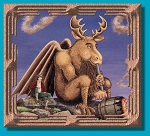End Of Worlds posted:Honestly any book about I/P that pretends not to have any bias is selling you something at best. Get a book whose bias you know in advance and interpret it with that knowledge in place. Correct. Some of the revisionists like Avi Shlaim are quite open about their biases and refer to their opponents though.
|
|
|
|
|

|
| # ? May 13, 2024 21:31 |
|
End Of Worlds posted:Honestly any book about I/P that pretends not to have any bias is selling you something at best. Get a book whose bias you know in advance and interpret it with that knowledge in place. This is true for any history book and not just ones about i/p
|
|
|
Stravinsky posted:This is true for any history book and not just ones about i/p True but I feel it's especially about modern issues as violently contentious as i/p. Like you can read 5 books on the Tudor dynasty and probably not get wildly different portrays, but hoo boy is that not the case (in my experience) for books about i/p
|
|
|
|
|
superbelch posted:But do pick up 1493, Mann's follow-up book to 1491. Ehhhh... it wasn't BAD, but I didn't like it nearly as much as 1491. I think he struggled a bit on how much detail to give individual topics when he went from a period we know relatively little about and that has few sources to one that has a ton of sources. We get it, mosquitoes are important. They just aren't interesting for that many pages. Not a bad book though, and if the period interests you it's worth a read. edit: If we're doing year books though 1177 BC: The Year Civilization Collapsed is a good one. The majority of the book isn't about the collapse itself but is basically a survey of the late bronze age world, and if you're like me and didn't know much about it it is a great introduction. Fork of Unknown Origins fucked around with this message at 17:14 on Oct 10, 2015 |
|
|
|
dublish posted:Nah, you're thinking 1434. 1421 is the one where China discovers California. Yeah 1434 is horrendously bad.
|
|
|
|
1984 was not very good; there were a lot of inaccuracies.
|
|
|
|
2666 for best year book..
|
|
|
|
Kuiperdolin posted:1984 was not very good; there were a lot of inaccuracies. Particularly the part where Stalinism is portrayed as bad.
|
|
|
|
2001 is pretty bullshit as well as history books go
|
|
|
|
|
Kuiperdolin posted:1984 was not very good; there were a lot of inaccuracies. It's not meant to be history! The nerve of some people. I mean, if you can't see by the mention of an utterly ridiculous and fictional war with our noble Eastasian allies that this is clearly prolefeed of the lowest order, what hope is there left for you? Trin Tragula fucked around with this message at 23:34 on Oct 10, 2015 |
|
|
|
Argali posted:Yeah 1434 is horrendously bad. isnt idea of that book was the chinese visit started the renaissance?
|
|
|
|
Dapper_Swindler posted:isnt idea of that book was the chinese visit started the renaissance? It sure was! It's really bad, and is less historically sound than some speculative fiction that I have read. It misunderstands: China in 1434 Italy in 1434 The rest of Europe in 1434 That "The Renaissance" wasn't one thing, and didn't start first or solely in Italy That one event couldn't possibly start a phenomenon like the Italian Renaissance
|
|
|
|
That is a very persuasive recommendation, I'll be on the lookout for 1434.
|
|
|
|
Railing Kill posted:It sure was! It's really bad, and is less historically sound than some speculative fiction that I have read. It misunderstands: This is a theory that really annoys me as their really is just one thing that kind of jumpstarted the Italian Renaissance.
|
|
|
|
BravestOfTheLamps posted:That is a very persuasive recommendation, I'll be on the lookout for 1434. Maybe I should clarify: 1434 doesn't understand that "The Renaissance" was a widespread thing and that it wasn't started by one event. It claims that "The Renaissance" was one thing, and that a visit from China started it. My post was a bit muddled by too many negatives. That's what I meant by "misunderstands."
|
|
|
|
Railing Kill posted:Maybe I should clarify: 1434 doesn't understand that "The Renaissance" was a widespread thing and that it wasn't started by one event. It claims that "The Renaissance" was one thing, and that a visit from China started it. My post was a bit muddled by too many negatives. I'm already sold on it, say no more.
|
|
|
|
So I'm reading a book called Blood on the Snow: The Carpathian Winter War of 1915 by Graydon Tunstall, about the Austro-Russian front in the mountains during WW1 - apparently the first major work of scholarship in English on this particular part of WW1.Blood on the Snow posted:Readers of this investigation will note the frequent depiction of Habsburg troops as utterly exhausted and increasingly apathetic. At the risk of sounding repetitive, the mental and physical condition of Habsburg troops is critical to understanding the Carpathian Winter War. The exhaustion experienced in combat under winter conditions is incomprehensible to those who have not suffered under such circumstances. Reading the daily log-books of Habsburg units participating in the Carpathian Winter War, one would be hard-pressed to find an entry that did not include the words ganz eschopft ("utterly exhausted"). The men's physical and mental exhaustion was exacerbated by hunger. Food supplies often did not reach the front, and those that did were often frozen solid. The men began to hallucinate about food, driving them to near insanity. In the winter of 1915, not only did Habsburg Supreme Command decide to deploy massive armies into a region unfit for a major combat operation, but also, it did so with no provision for the most basic of necessities - food, clothing, and shelter. 
|
|
|
|
Reminds me of The White War (about Italy in WWI), a great book.
|
|
|
|
"One thing that greatly puzzled me when writing 1421 was the lack of curiosity among many professional historians."
|
|
|
|
This may have been asked before but my memory isn't that great: I'm looking for books on the history of disease, plagues, etc. I've read The Coming Plague and I'm currently reading Plague's Progress but both were picked up at random so I don't know what else is out there. I'm going to delve in to their bibliographies but I'm wondering what the thread recommends.
|
|
|
|
The Emperor of All Maladies is a history of cancer that won a ton of awards. The Great Mortality is a brief, breezy book about the Black Death. The Great Influenza covers the Spanish Flu pandemic during WWI. Not sure those were exactly what you're looking for, but that's what I can recommend from what I've read. Guns, Germs and Steel also covers this to some degree.
|
|
|
|
Speaking of, anything interesting about polio in the 1930s-50s? I do a lot of newspaper research in that era and March of Dimes stuff is huge.
|
|
|
|
Cythereal posted:So I'm reading a book called Blood on the Snow: The Carpathian Winter War of 1915 by Graydon Tunstall, about the Austro-Russian front in the mountains during WW1 - apparently the first major work of scholarship in English on this particular part of WW1. Jesus, that soudns grueling and soul-crushing to live through.
|
|
|
|
MonsieurChoc posted:Jesus, that soudns grueling and soul-crushing to live through. As another posted mentioned, it does sound like the Austro-Hungarian take on The White War, which I read last year and was quite enough on the incredibly depressing suffering of men on a WWI front in the mountains in winter for at least another year or two :S *sadly throws this book into Amazon Wishlist anyways*
|
|
|
|
left_unattended posted:This may have been asked before but my memory isn't that great: I'm looking for books on the history of disease, plagues, etc. I've read The Coming Plague and I'm currently reading Plague's Progress but both were picked up at random so I don't know what else is out there. I'm going to delve in to their bibliographies but I'm wondering what the thread recommends. My favourites to date: Bring Out Your Dead:The Great Plague of Yellow Fever in Philadelphia in 1793 by J.H. Powell Typhoid Mary: Captive to the Public's Health by Judith Walzer Leavitt The Forgotten Plague: How the Battle Against Tuberculosis Was Won-And Lost by Frank Ryan, M.D. Pox: Genius, Madness, and the Mysteries of Syphilis by Deborah Hayden Yellow Fever, Black Goddess: The Coevolution of People and Plagues by Christopher Wills Rats, Lice and History by Hans Zinsser Plagues and Peoples by William H. McNeill The Malaria Capers by Robert S. Desowitz Infections and Inequalities: The Modern Plagues by Paul Farmer The Black Death and the Transformation of the West by David Herlihy
|
|
|
|
smr posted:As another posted mentioned, it does sound like the Austro-Hungarian take on The White War, which I read last year and was quite enough on the incredibly depressing suffering of men on a WWI front in the mountains in winter for at least another year or two :S Honestly, this might be the most fatiguing history book I've ever read despite being a pretty small book by history standards. It's page after page of "People suffered unimaginable hell, died in huge numbers from battle, environmental conditions, and suicide, high command back in Vienna is completely clueless about conditions and assumes all is well which is why they never send cold-weather gear or supplies that can handle the conditions, and the best thing you can say about the entire theater is that both sides stopped the other from accomplishing anything."
|
|
|
|
xcheopis posted:My favourites to date: Also Richard Preston's Demon in the Freezer is a good look at the efforts to eradicate smallpox in the 1970s, and smallpox in general.
|
|
|
|
Cythereal posted:Honestly, this might be the most fatiguing history book I've ever read despite being a pretty small book by history standards. It's page after page of "People suffered unimaginable hell, died in huge numbers from battle, environmental conditions, and suicide, high command back in Vienna is completely clueless about conditions and assumes all is well which is why they never send cold-weather gear or supplies that can handle the conditions, and the best thing you can say about the entire theater is that both sides stopped the other from accomplishing anything." A lot of the Amazon reviews mention that the book is poorly written, can you expand on that a bit? I'm hesitant to pick it up despite wanting to read a more thorough piece on the subject.
|
|
|
|
Pron on VHS posted:Also Richard Preston's Demon in the Freezer is a good look at the efforts to eradicate smallpox in the 1970s, and smallpox in general. I'm going to check this out. I've read some of his books and, while a bit sensationalistic, they were quite good.
|
|
|
|
Devlan Mud posted:A lot of the Amazon reviews mention that the book is poorly written, can you expand on that a bit? I'm hesitant to pick it up despite wanting to read a more thorough piece on the subject. I don't know if I'd call it so much poorly written as dry. I've found it a straightforward history piece. There's no engaging narrative or characters to follow, just a dry and straightforward look at the history of the Carpathian war.
|
|
|
|
Railing Kill posted:Maybe I should clarify: 1434 doesn't understand that "The Renaissance" was a widespread thing and that it wasn't started by one event. It claims that "The Renaissance" was one thing, and that a visit from China started it. My post was a bit muddled by too many negatives. I personally follow the Sack and Follow theory of the Renaissance as the major kickstarter but that's justme
|
|
|
|
So this is a rather large but incredibly well written book that catalogs US foreign policy from the nation's inception to the relative present (2008) The insights Herring gives the reader into the minds of the movers and shakers of US policy has been a real interesting experience. I also picked up the audio version via audible.com for listening on my way to work. 
|
|
|
|
Any suggestions for the BotM poll? Right now I'm leaning towards The Black Count because it was pretty awesome
|
|
|
|
|
Hieronymous Alloy posted:Any suggestions for the BotM poll? Right now I'm leaning towards The Black Count because it was pretty awesome It'd probably help that it's $2 right on on Amazon US ebook, though for who knows how long at that price: http://www.amazon.com/Black-Count-Revolution-Betrayal-Biography-ebook/dp/B007OLYPA4
|
|
|
|
xcheopis posted:My favourites to date: This is an amazing list, thank you. Pron on VHS posted:Also Richard Preston's Demon in the Freezer is a good look at the efforts to eradicate smallpox in the 1970s, and smallpox in general. I'll check that one out too, thanks.
|
|
|
|
http://www.amazon.com/Heart-Europe-History-Roman-Empire/dp/0674058097 Looking forward to this when it's released. Nice big fat book on the Holy Roman Empire which is a topic I know almost nothing about.
|
|
|
Jive One posted:http://www.amazon.com/Heart-Europe-History-Roman-Empire/dp/0674058097 I await the specialists of each era of its history hating in this guy with glee.
|
|
|
|
|
Hocus Pocus posted:And anything good on British Hong Kong? The closest to a book I've found as a well worded overview of pre-handover Hong Kong is the excellent 10-part series in The China History Podcast. While an excellent (history) focused program in general, the Hong Kong series is definitely a step above, and directly lead to my getting a passport and the hell out of the Midwest. I'm on a phone and can't link the whole set, but here's the first in the line: http://chinahistorypodcast.com/chp-101-the-history-of-hong-kong-part-1
|
|
|
|
Jive One posted:http://www.amazon.com/Heart-Europe-History-Roman-Empire/dp/0674058097 Same here. His book on the Thirty Years' War was really dry and tended to just pile on names and locations, but I enjoyed it all the same.
|
|
|
|

|
| # ? May 13, 2024 21:31 |
|
kalthir posted:Same here. His book on the Thirty Years' War was really dry and tended to just pile on names and locations, but I enjoyed it all the same. Agreed. Europe's Tragedy is really good, but it's hard to approach a topic like the Thirty Years War without at least some of it turning into a pile of names and dates. Things get so complicated so fast that minutiae accumulate in a hurry. I thought Wilson handled it well and I enjoyed it enough that I've been thinking about checking out Heart of Europe when it comes out.
|
|
|







































